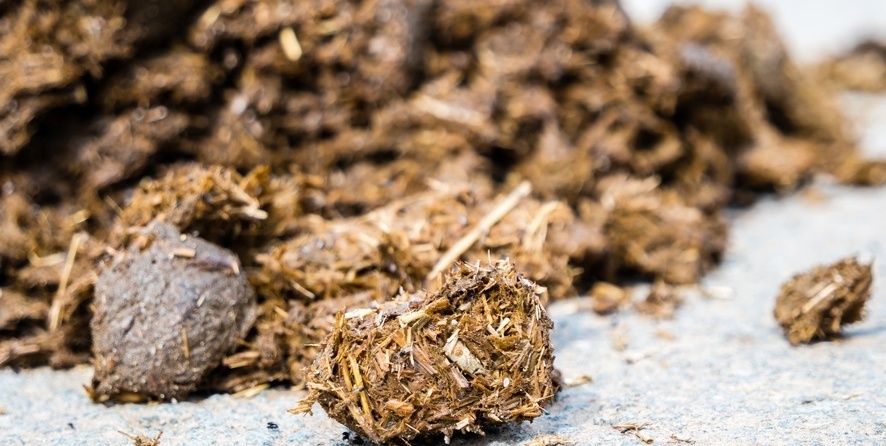
Naturally horses graze for up to 18 hours a day, taking in small portions of food. The food rich in crude fibre is chewed extensively and gets into the stomach as well salivated food mash. There, the pH value of the feed pulp is reduced by the gastric acid in order to kill germs. In the intestine, the food, which has already been mixed and processed in the stomach, is further digested so that the nutrients can be absorbed from the intestine. Here the small intestine, which is composed of the duodenum, jejunum, and ileum, takes over the processing of easily digestible nutrients, as well as the absorption of the resulting basic building blocks through the intestinal mucosa and into the bloodstream.

The large intestine digests the nutrients that are more difficult to digest, like hay and straw, and absorbs the resulting basic building blocks. The large intestine is divided into the appendix, large and small colon, and rectum. The appendix and the large colon are also called fermentation chambers, in which the digestion of microbial raw fiber takes place. In addition to crude fiber digestion, the intestinal bacteria of the appendix and the large colon produce vitamin C, vitamin K, and B complex vitamins. In the small colon, the final extraction of water as well as manure formation take place, and the rectum regulates manure turnover.
The horse's digestive system is very sensitive and can be quickly upset. Consequently horses need rest when eating, frequent meals, and sufficient time for digestion of meals. Stress and poor posture and feeding can cause stomach ulcers, as well as intestinal ulcers, which are just as unpleasant for the horse. Therefore it is necessary to feed roughage frequently and in sufficient quantities to produce enough saliva to buffer the pH in the stomach, give the concentrate only after roughage, and avoid stress, which stimulates the production of gastric acid.
